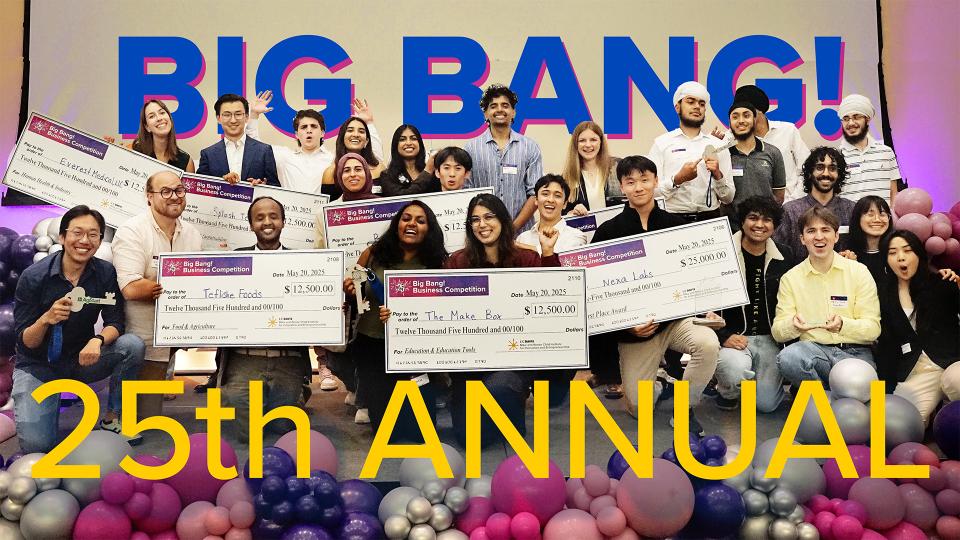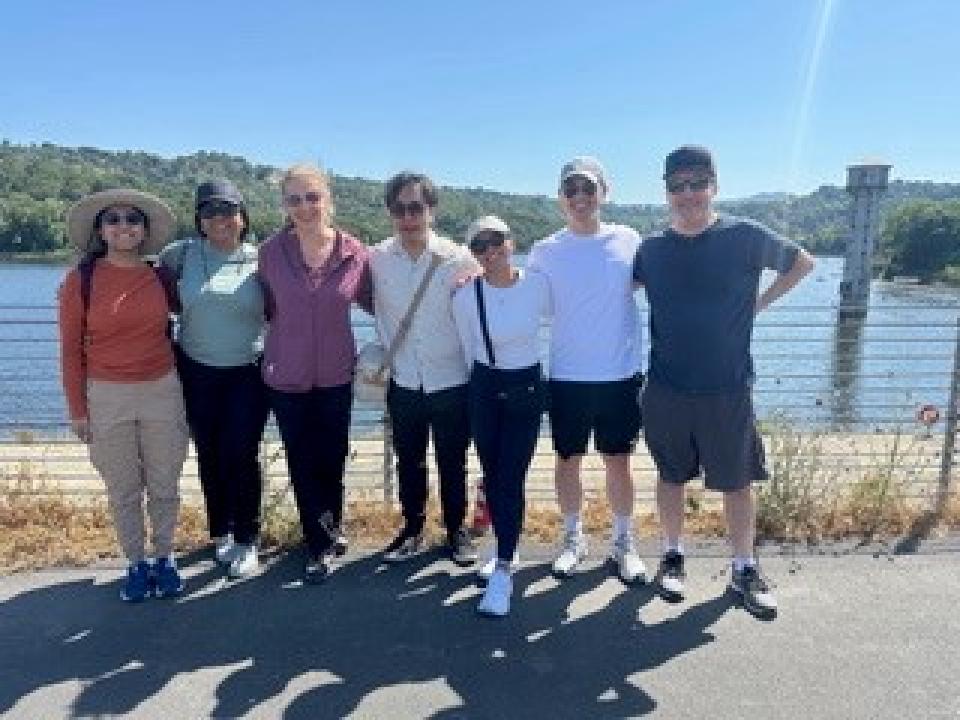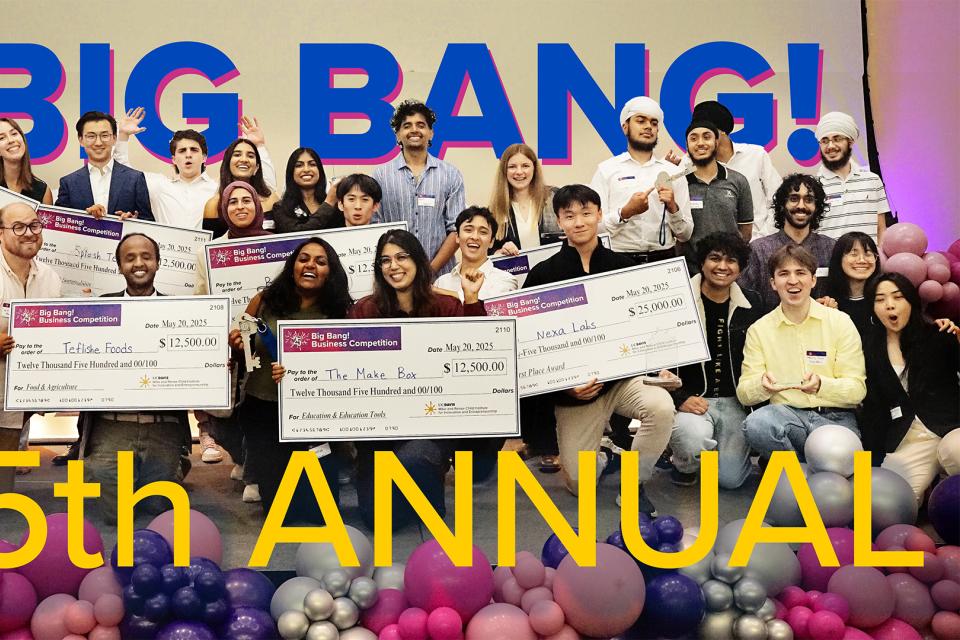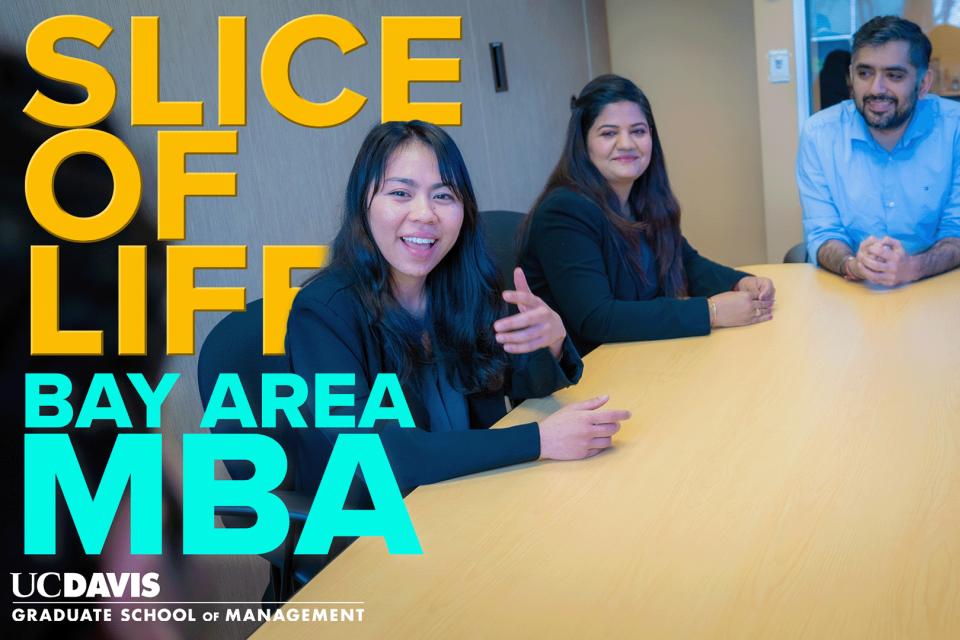How My MBA Helped Me Tackle the High Drug Cost Problem
Disrupting big pharma with biotech startup at the Big Bang! Business Competition

The pandemic reset my professional trajectory, and I began searching for what was next. A mentor’s advice to pursue a Master of Business Administration (MBA) aligned perfectly with my entrepreneurial interests and desire to grow. It wasn’t just about the next job — it was about building a new chapter with intention.
When COVID-19 shut the world down, I found myself speeding up. Supply chain issues and medication shortages exposed deep flaws in the U.S. pharmaceutical system, and I became focused on one big question: Why is access to medication still so broken?
That question sparked my journey to the UC Davis Big Bang! Business Competition. More than a competition, it helped redefine how I see innovation, not as a title or goal, but a responsibility to create lasting impact.
Organized by the Mike and Renée Child Institute for Innovation and Entrepreneurship, the Big Bang! Business Competition, UC Davis’ premier startup accelerator, celebrated its 25th anniversary in 2025. Offering workshops, mentorship and over $100,000 in annual funding, the competition has helped thousands of California-based students and researchers turn bold ideas into real-world solutions.
The Drug Pricing Problem that Led to LIGHTLOCK BIO
It began with a simple curiosity: why did something like an EpiPen, which costs a few dollars to make, end up priced at over $600? During the pandemic, this pricing disconnect became even more urgent. Initially, I researched pharmacy benefit managers (PBMs) and drug pricing structures.

After presenting an early idea in Professor Prasad Naik’s Marketing Management course, I was advised to shift from pricing to drug production.
The irony is that just a few years after working on my original idea, tech businessman and investor Mark Cuban launched the Cost Plus Drug Company to tackle the same market inefficiencies I had been studying, confirming that the problem I identified wasn’t just academic, but a real, industry-wide pain point.
Digging deeper, I looked into biologic drug manufacturing and discovered significant inefficiencies, especially in purification. Interviews with potential customers confirmed that downstream processing was a key bottleneck.
This led to the foundation of LIGHTLOCK BIO, a company focused on developing a new affinity chromatography platform to modernize drug production.

Why I Entered the Big Bang! Competition
I first heard about the Big Bang! Competition from Dean H. Rao Unnava and Naik. Encouraged to participate, I entered a proposal on domestic drug production. Through customer discovery and feedback, the idea pivoted again to a novel purification platform.
Though I advanced to the final round, I did not win an award or funding, but I left with clarity: to move forward, I needed to build a minimum viable product (MVP).
The experience echoed a core lesson from my Management of Innovation course taught by Gareth Keeves, that innovation isn’t about one big idea—it’s about iteration, feedback and staying curious.
UC Davis MBA for Biotech Careers
After early work on drug access, I was encouraged to pursue an MBA. The UC Davis Bay Area Part-Time MBA program was the right fit—close to home with a hybrid format in San Ramon, and with strong ties to biotech, including the Biotechnology Industry Immersion, it aligned perfectly with my goals.
Balancing work, school and life wasn’t easy, but with a supportive family and employer, especially my manager, Kevin Murphy at my current employer DHL, I stayed focused on long-term goals.
One course that stood out was Product Management with Marc Lowe. Coming from a non-business background, I valued the use of simulations to teach product lifecycle strategy—skills I use today.
The program also challenged me to collaborate with classmates from diverse professional and personal backgrounds.
One memorable moment came during a thoughtful exchange with fellow student Bay Area Part-Time MBA Nicole Sanchez. What began as differing viewpoints quickly became an opportunity—one that pushed me to listen more closely, question my assumptions and refine my perspective.

How UC Davis Helped Launch Our Biotech Startup
UC Davis gave me more than a degree—it gave me access to a powerful network.
Through the Mike and Renée Child Institute for Innovation and Entrepreneurship, Venture Catalyst and NSF I-Corps (via UC Santa Cruz), I was introduced to experts who helped refine our business and scientific approach.
Two of the most influential mentors were Steve Chamow and Minni Aswath, both experienced leaders in bioprocessing. Their insight into scientific feasibility and regulatory strategy shaped the future of our venture. I owe much of these connections to Lecturer Hemant Vaidya, who reinforced the use of the Business Model Canvas in structuring our path forward.
Today, our team is developing an MVP, securing lab space and pursuing grants and competitions. We’re currently in NSF I-Corps, refining our business model and exploring paths to market.
Throughout this journey, I’ve grown to believe that business can and should be rooted in purpose. As outlined in “8 Ways to Build a Business with Higher Purpose,” businesses that align with real human needs and values generate deeper engagement from customers, investors and teams alike.
This experience has taught me that entrepreneurship isn’t just about building products—it’s about listening, learning and evolving with purpose.
If you’re passionate about solving real problems—even those that don’t fit neatly into a spreadsheet—UC Davis is the place to explore, test and build that passion into something that matters.


